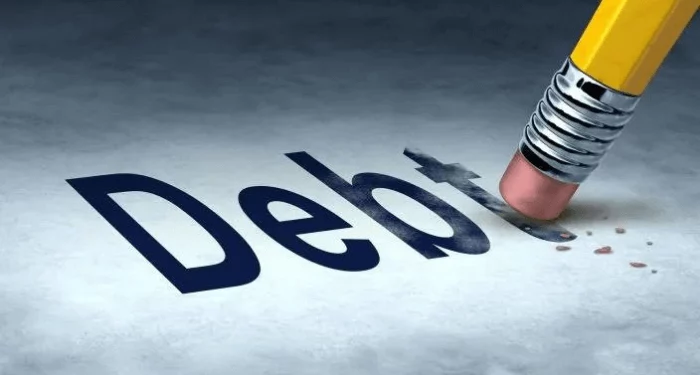Ghana’s designation as a country with high debt distress will be reviewed after 2028, according to the International Monetary Fund (IMF) Staff Report released following the country’s successful third review under the Extended Credit Facility (ECF) programme.
The IMF attributed the current classification to near-term breaches of the Debt Sustainability Analysis (DSA) threshold but noted that Ghana is on track to achieve a “Moderate Risk” debt distress rating by 2028.
Path to Debt Sustainability
The report highlighted Ghana’s commitment to reducing the Present Value (PV) of Total Debt-to-GDP and external debt service-to-revenue ratios to 55% and 18% respectively by 2028.
Achieving these targets, the IMF says will require a revenue-based fiscal consolidation strategy, enhanced spending efficiency, and a stronger social safety net.
Adding that structural reforms aimed at promoting greater exchange rate flexibility, economic diversification, and sustainable growth are also integral to reducing Ghana’s debt and improving the external debt service-to-revenue ratio.
Progress on Debt Restructuring
The IMF’s assessment comes amid Ghana’s announcement of achieving approximately 90% completion in restructuring its public debt.
Recent data from the Bank of Ghana (BoG) revealed a reduction in the total debt stock by over GHS 46 billion, bringing the figure to GHS 761 billion as of October 2024.
The BoG emphasized that the government’s efforts are focused on restoring debt sustainability through the Fund-supported programme.
Collaboration with Creditors
The Staff Report also disclosed ongoing collaboration between Ghana and the Official Creditor Committee (OCC).
Bilateral agreements are being prepared to implement the Memorandum of Understanding, with formal agreements expected to be signed by June 2025.
Meanwhile, negotiations with commercial creditors are also anticipated to conclude shortly.
IMF’s Outlook
The IMF underscored that Ghana’s success depends on the government’s steadfast commitment to implementing the programme’s objectives. These include fiscal discipline, reforms, and measures to ensure economic resilience.
As Ghana navigates its path toward debt sustainability, the IMF reiterated the importance of structural and fiscal reforms to achieve the desired debt risk rating and foster long-term economic stability.
Disclaimer: Ahotoronline.com is not liable for any damages resulting from the use of this information





